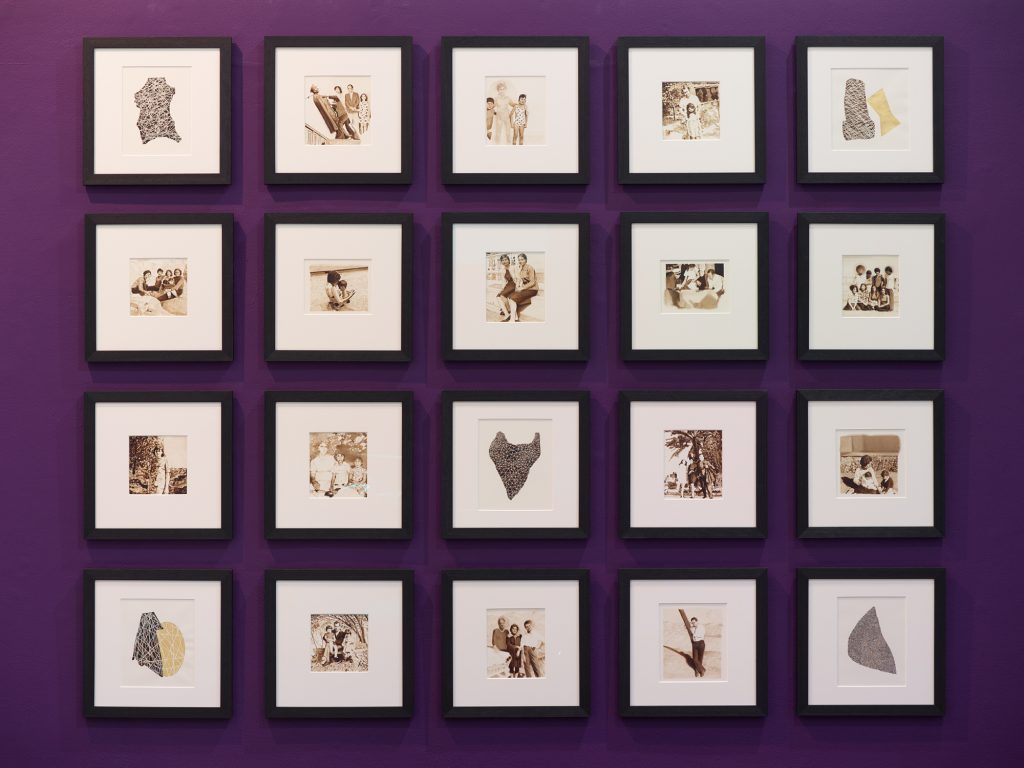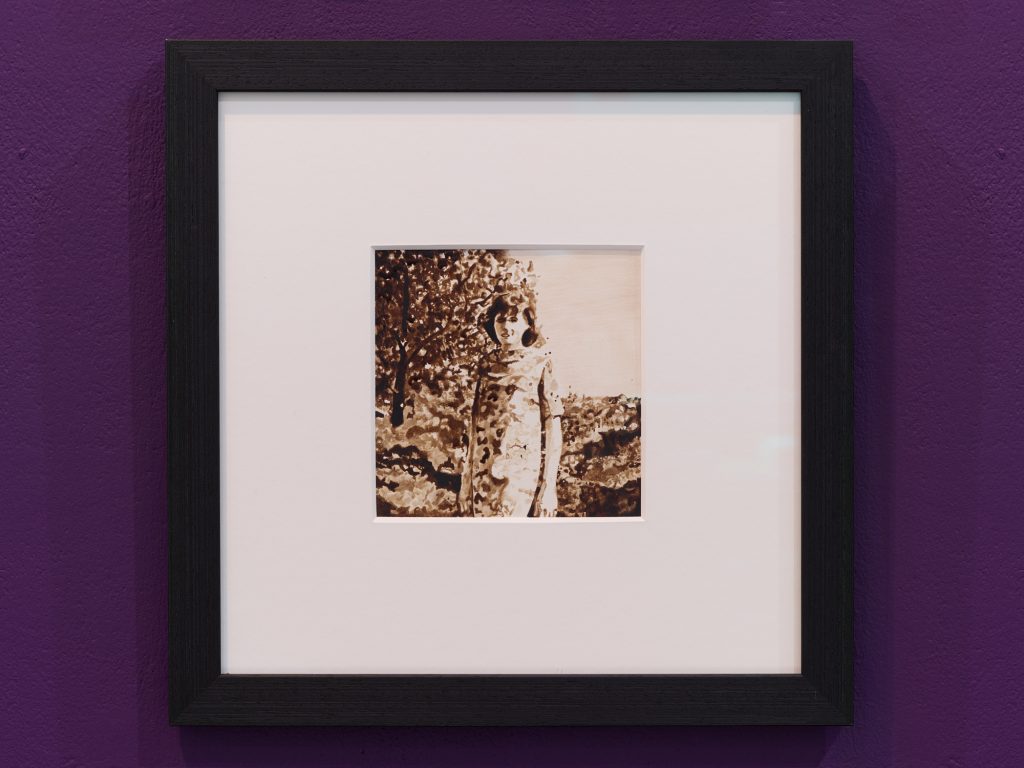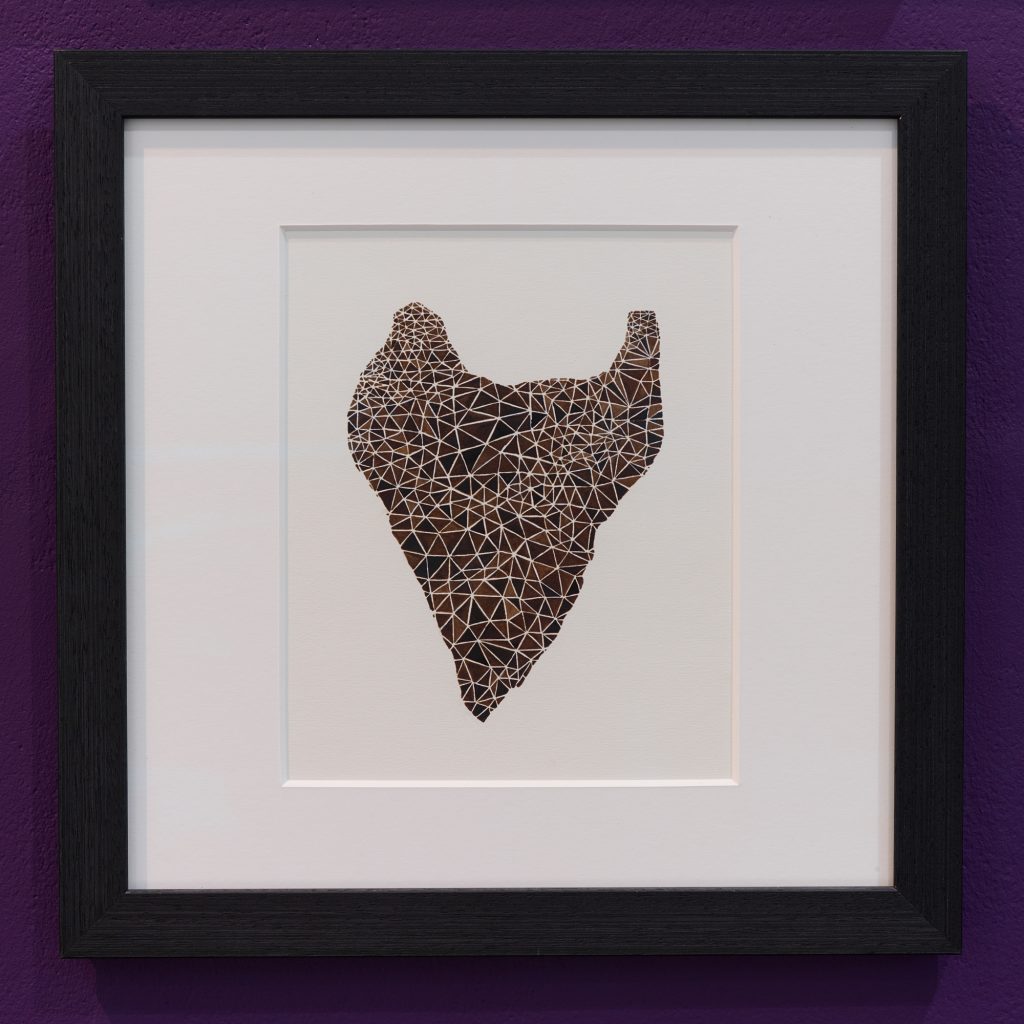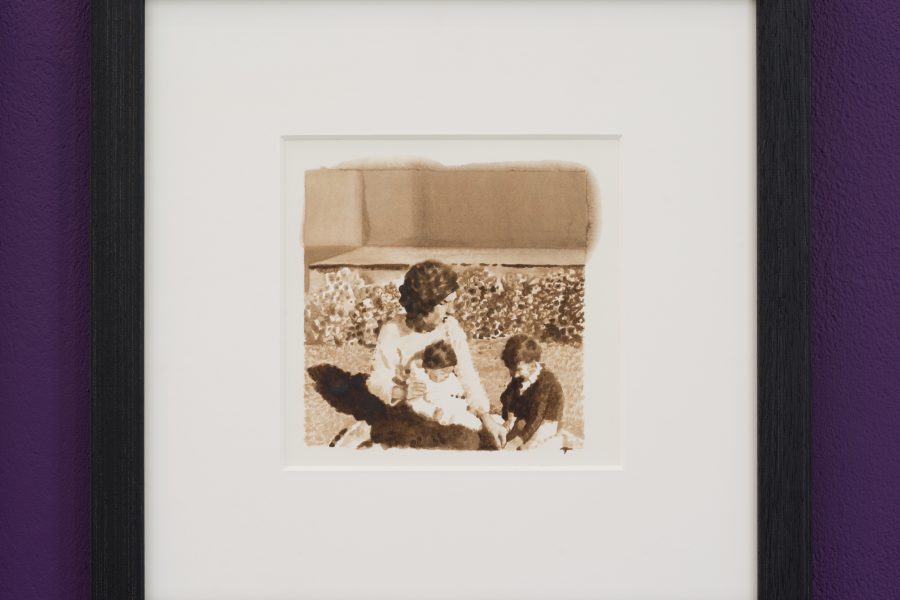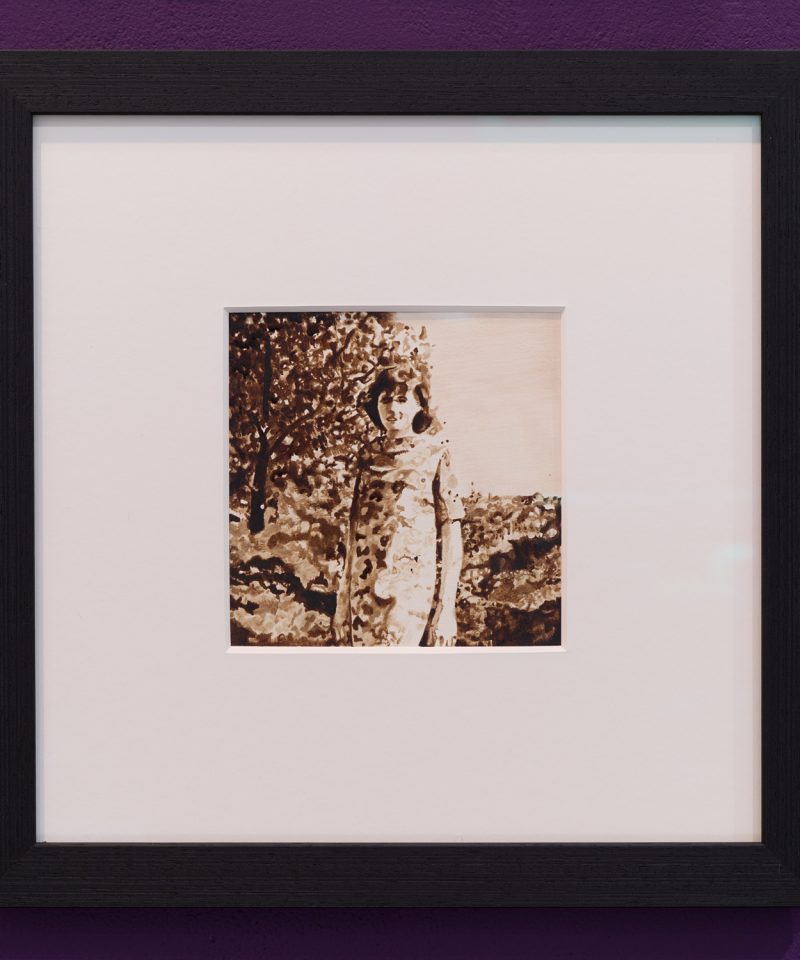New work by Soheila Sokhanvari, a series of 20 framed drawings on paper in crude oil and gold . Born in Iran and now living in Cambridge, these works draw on Soheila Sokhanvari’s personal history in order to explore how political events in the Middle East might have wider implications in the West.
The medium of the drawings, crude oil and gold, are considered two of the most precious commodities in the world. They both connect the two regions, reflecting on the materials’ properties and the role that they have played in historical, political events. These have had personal implications for Sokhanvari, her family, and Iranians prior to 1979 and the toppling of the Pahlavi regime.
The majority of the drawings in the exhibition are recreations of Sokhanvari’s family photographs taken in Iran, many of which represent the artist as a young child. Amongst them, within the grid arrangement, are two exceptions: a recreation of an iconic photograph of Benno Ohnesorg and a collaged drawing combining a family photograph with an image taken from the media. Benno Ohnesorg was a German student who was shot in Berlin by a police officer while participating in a protest against the Shah of Iran’s state visit to Germany. A photograph taken after he was shot was widely circulated in the media at the time. Their inclusions amongst the artist’s family portraits signify how political situations are not self-contained; events in one country can have wider effects in another.
Various degrees of blurring within the drawings are a result of the method in which they were made: the artist viewed the original photographs through a lens, manipulating the tilt-shift so they fell in and out of focus. This is intended as a metaphorical reflection on memory; whilst some remain sharp, others are faded. A series of abstract patterned drawings, considered as self-portraits by the artist, are derived from the negative spaces between people and objects within family photographs that were taken after her exile from Iran, offering a reflection on displacement and the effect it might have on family life.
Soheila Sokhanvari is currently a studio artist at Wysing Arts Centre (since 2013) and has exhibited extensively throughout Europe and the Middle East.
